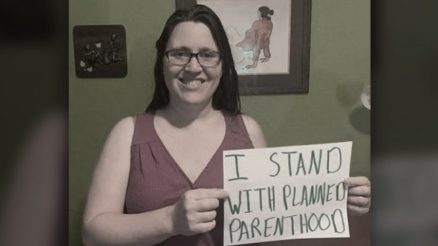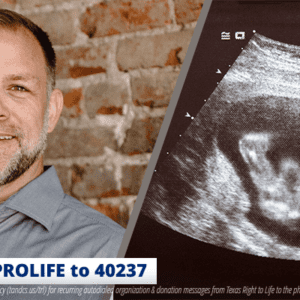Influential woman with Down syndrome: "Every Life matters, regardless of the number of chromosomes we have"
Karen Gaffney, an influential woman with Down syndrome, has made some monumental achievements since her birth in 1977—achievements that most of us only dream of accomplishing. In 2001, for example, Gaffney swam the English Channel (in other words, she swam from England to France).
Then, in 2013, Gaffney became the first living person with Down syndrome to receive an honorary doctorate. In the TED talk below, Gaffney conveys her ideas more convincingly and passionately than most PhDs. The talk is entitled, “All Lives Matter.”
<iframe width="560" height="315" src="https://www.youtube.com/embed/HwxjoBQdn0s" frameborder="0" allowfullscreen></iframe>
Of her manifold gifts, Gaffney possesses the unique ability to advocate for the Down syndrome community while living with Down syndrome. Her lighthearted sense of humor and positive attitude toward Down syndrome underscore Gaffney’s message of inclusion for all people with disabilities. In a world where prenatal diagnoses of “abnormalities” like Down syndrome lead more often to abortion than to welcoming children like Gaffney into the world, her message is timely and more urgent today than ever before.
Gaffney points to the tragic irony that individuals with Down syndrome only began living full lives incorporated into mainstream education and work opportunities a few decades ago. And while progress toward inclusion for people like her continues, the biggest hurdle is faced long before birth when parents decide their child’s fate.
In a particularly moving part of the talk, Gaffney speaks fondly of her fifth-grade teacher. When Gaffney entered the fifth grade, her teacher didn’t know anything about Down syndrome. As the teacher began to see that Gaffney wanted to learn, she developed a relationship with her pupil and understood that Gaffney was not limited by her genetic condition. Gaffney recounts that they stayed in touch over the years, which led to a very important phone call years later: Gaffney’s teacher learned that her child had Down syndrome, and she called Gaffney to share the news. Doctors had counseled her to seek an abortion, but she refused because she remembered her former student. Today, her daughter is thriving.
“I believe Down syndrome is a Life worth saying ‘yes’ to,” Gaffney said. Tragically, however, the most recent research relays that a high percentage of children diagnosed with Down syndrome in utero are aborted, and this number is likely to increase with the popularity of new, less-invasive forms of prenatal testing. Gaffney hopes that stories like her own – stories of hope and perseverance – will inspire parents to give Life to their children with Down syndrome and societies to continue offering more education and work opportunities to people like her.
Tags: culture, down syndrome, media




